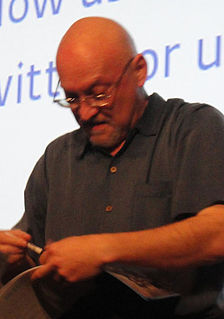A Quote by Patrick Ness
Don't think you haven't lived long enough to have a story to tell.
Related Quotes
I honestly would tell anyone young to start looking at stories and learning story, because I think that’s the next step after people go, ‘OK, I’ve had enough of that improvisation, I’ve had enough of those short comedy bits. Tell me a story, tell me a more complex story, something that lasts and maybe has a little more meaning to it.’ Don’t ever look at what’s happening now; look at what’s coming next.
My name is growing all the time, and I’ve lived a very long, long time; so my name is like a story. Real names tell you the story of the things they belong to in my language, in the Old Entish as you might say. It is a lovely language, but it takes a very long time to say anything in it, because we do not say anything in it, unless it is worth taking a long time to say, and to listen to.
I like to focus on stories that need to be told and are not told enough. When I get bit by that bug, and the story is saying, 'You must tell me,' I then go through a process which is often painful and arduous, and long - and joyful! - of submitting to the story until I prove a worthy enough vessel to get it out.


































